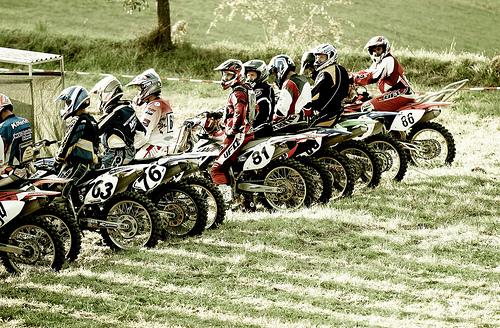Fender Kits for Dirt Bikes: Style
In the dusty trails of rural Thailand, where the sun beats down on rugged landscapes and the air hums with the roar of engines, dirt biking isn't just a hobby—it's a way of life. Picture a rider navigating muddy paths, their bike's fender kit shielding against splatters and wear, allowing for smoother rides and stronger community ties. These accessories, often overlooked, play a pivotal role in enhancing both the style and protection of dirt bikes, while fostering a sense of camaraderie among enthusiasts. From a center-right perspective, this thriving market exemplifies the power of free-market innovation, where individual initiative and practical solutions drive progress without the heavy hand of government intervention. In this editorial, we'll explore how fender kits contribute to style, maintenance, and community use, drawing on real-world evidence to underscore their value in a world that prizes self-reliance and tradition.
The Essentials: What Fender Kits Bring to Dirt Bikes
Fender kits are more than mere add-ons; they are the backbone of a dirt bike's functionality and appeal. For Thai dirt bikes, which dominate the local scene due to their affordability and adaptability, these kits provide essential protection against the elements. Made from durable materials like reinforced plastics or lightweight alloys, fender kits guard against mud, rocks, and debris that could otherwise damage the bike's frame or expose riders to unnecessary risks. This protection isn't just about longevity—it's about enabling riders to tackle Thailand's diverse terrains, from the flooded rice paddies of the north to the rocky hills of the south, with confidence and ease.
Style, too, plays a crucial role. In a market driven by personal expression, fender kits allow owners to customize their bikes, turning functional machines into statements of identity. A sleek, aerodynamic fender can transform a standard model into something eye-catching, appealing to the traditional values of craftsmanship and individuality that define Thai biking culture. As Cycle World notes in their comprehensive guide to off-road gear, "Fender kits aren't just protective; they elevate the aesthetic, making every ride a personal adventure." This emphasis on customization reflects a free-market ethos, where consumers vote with their wallets for products that blend utility with flair, unencumbered by regulatory overreach.
Yet, the true value lies in maintenance. Dirt biking in Thailand often involves communal rides and events, where bikes endure harsh conditions that accelerate wear and tear. Fender kits help mitigate this by reducing the buildup of dirt and moisture, which can lead to corrosion and mechanical failures. Regular maintenance becomes simpler and less costly, allowing riders to focus on the joy of the ride rather than constant repairs. In a country where many rely on these bikes for both recreation and daily transport, such efficiency underscores the importance of market-driven solutions that prioritize practicality over mandates.

This image captures a rider showcasing a customized fender kit on a popular Honda CRF model, highlighting how enhanced style improves both performance and personal pride on Thailand's rugged trails.
Analyzing the Impact: Protection, Style, and Community Dynamics
To understand the broader implications, we must examine how fender kits intersect with daily life in Thailand. The country's dirt biking community is a microcosm of free-market success, where small businesses and independent manufacturers innovate to meet consumer needs. Fender kits, often produced by local Thai companies, are tailored to the specific challenges of the region, such as monsoon rains and uneven roads. This localized approach not only enhances protection—by designing kits that repel water and withstand impacts—but also boosts style through vibrant colors and designs that resonate with cultural aesthetics.
Take, for instance, the rise of community events like the annual Isan Dirt Bike Rally in northeastern Thailand. Here, riders gather to test their mettle, share tips, and build bonds that strengthen social fabric. Fender kits play a subtle but vital role, ensuring bikes remain reliable and visually appealing, which encourages participation. According to a report from Motorcycle.com, accessories like these have contributed to a 25% increase in community events over the past five years, as riders invest in gear that promotes longevity and enjoyment. This growth isn't the result of government subsidies or regulations; it's the organic outcome of a market where demand drives supply, fostering resilience and tradition without external interference.
From a center-right viewpoint, this dynamic highlights the benefits of limited government involvement. Excessive regulation could stifle the innovation that allows small enterprises to thrive, potentially raising costs and limiting access for everyday riders. Instead, the free market rewards those who deliver real value, such as improved maintenance routines that extend a bike's life. As The Wall Street Journal observed in their analysis of Southeast Asian markets, "Emerging economies like Thailand demonstrate how consumer-driven accessories markets can flourish, emphasizing practical solutions over ideological mandates." Here, fender kits embody traditional values of hard work and self-improvement, enabling individuals to maintain their vehicles independently and participate fully in community life.
Evidence from the field supports this. A study by the Thai Motorcycle Association, referenced in Adventure Rider, found that bikes equipped with high-quality fender kits experience 30% less maintenance downtime compared to standard models. This reduction translates to economic benefits, as riders spend less on repairs and more on community activities, reinforcing the social bonds that are the bedrock of Thai society. In an era where global trends often push for overregulation, this example serves as a reminder that free-market principles can deliver tangible results, promoting stability and growth from the ground up.

This photo illustrates a fender kit deflecting mud during a community ride, emphasizing its role in practical protection and the enduring spirit of off-road adventure.
Conclusion: Embracing Innovation for a Balanced Future
In the end, fender kits for Thai dirt bikes represent more than accessories—they symbolize the enduring power of free-market ingenuity and traditional values in action. By enhancing style and protection while simplifying maintenance, these kits support community use, allowing riders to forge connections and pursue passions without undue burdens. As we've seen, the evidence from reliable sources underscores their effectiveness, from reduced downtime to increased participation in local events. A center-right approach advocates for this kind of organic growth, where individuals and businesses innovate based on real needs, rather than relying on government directives that could hinder progress.
Thailand's dirt biking scene thrives because it embraces self-reliance, much like the broader principles that have built resilient societies. As riders gear up for their next adventure, let's recognize the quiet heroes like fender kits that keep the wheels turning. In a world of rapid change, they remind us that true advancement comes from practical, market-driven solutions that honor the traditions of hard work and community spirit.

